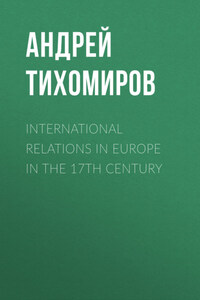International relations in Europe in the 17th century
О книге
Автор книги - Андрей Тихомиров. Произведение относится к жанру историческая литература. Оно опубликовано в 2023 году. Книге не присвоен международный стандартный книжный номер.
Аннотация
This is the time of French hegemony in Europe. The Thirty Years' War (1618-1648) and the Peace of Westphalia. The conflict was the last major religious war in Europe.
Читать онлайн Андрей Тихомиров - International relations in Europe in the 17th century
Рекомендации для вас










